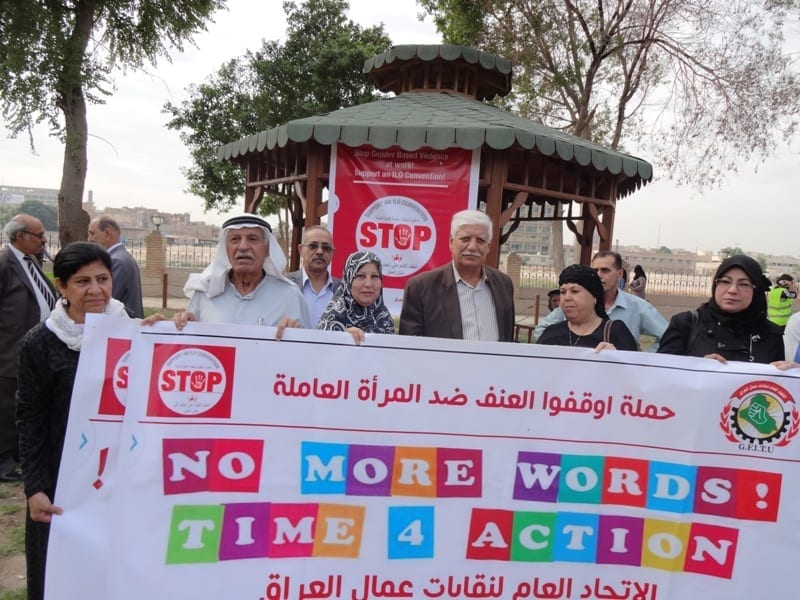Violence against women takes many forms, and can happen in the home, in public spaces—and on the job. At the workplace, 35 percent of women worldwide have experienced violence.
This November 25, International Day for the Elimination of Violence against Women, unions around the world are calling for the International Labor Organization (ILO) to pass an global convention on gender-based violence at the workplace. As the International Trade Union Confederation (ITUC) points out, “anyone can be a victim of violence at work, but gender-based violence typifies unequal economic and social power relations between women and men.”
Union leaders and allies are re-submitting a proposal to the ILO Governing Body requiring the ILO to develop an international standard to guide governments and businesses in formulating strong laws and policies to prevent and remedy gender-based violence at work. The ILO Governing Body adjourned this month without considering a similar proposal, and will meet again in March 2015. (You can take action through the International Transport Workers’ Federation’s “End workplace violence against women” campaign.)
This fall, workers in the Middle East and North Africa waged rallies and sit-ins to highlight the issue. The General Federation of Iraq Trade Unions (GFITU) organized a solidarity gathering in late October at Al Qushla Square in Baghdad. Hashmeyya Al Sa’adawi,IndustriALL executive board member and president of the electricity union in Basrah, read the statement of the Arab unionist women network, which expressed concern over increased violence against women.
“We believe that the violence against women issue is a crucial matter that requires immediate action,” she stated
In Morocco, the Democratic Labor Confederation (Confédération Démocratique du Travaille, CDT), organized a sit-in outside Parliament to raise awareness about gender-based violence in the workplace and request support for the convention (watch a video clip of the event).
The Jordanian Federation of the Independent Trade Unions sent a letter to the country’s chambers of commerce and industry and Jordanian government officials urging their support for passage of the gender-based violence standards in the ILO Administration Council.
Women disproportionately work in precarious, low-income and informal economy jobs, where there are few mechanisms to prevent violence and exploitation. Women also are the majority in occupations where workers are more likely to be exposed to violence, such as domestic work and health care, the garment and textile industries and in agriculture. Many women do not report physical, psychological or sexual violence fearing they will be fired or because of cultural norms.
An ILO Convention would further acknowledge that violence against women is a human rights violation, and would be an important step to improving women’s working conditions worldwide and saving the millions of dollars spent every year on health care, lower productivity and sick leave because of violence against women,

